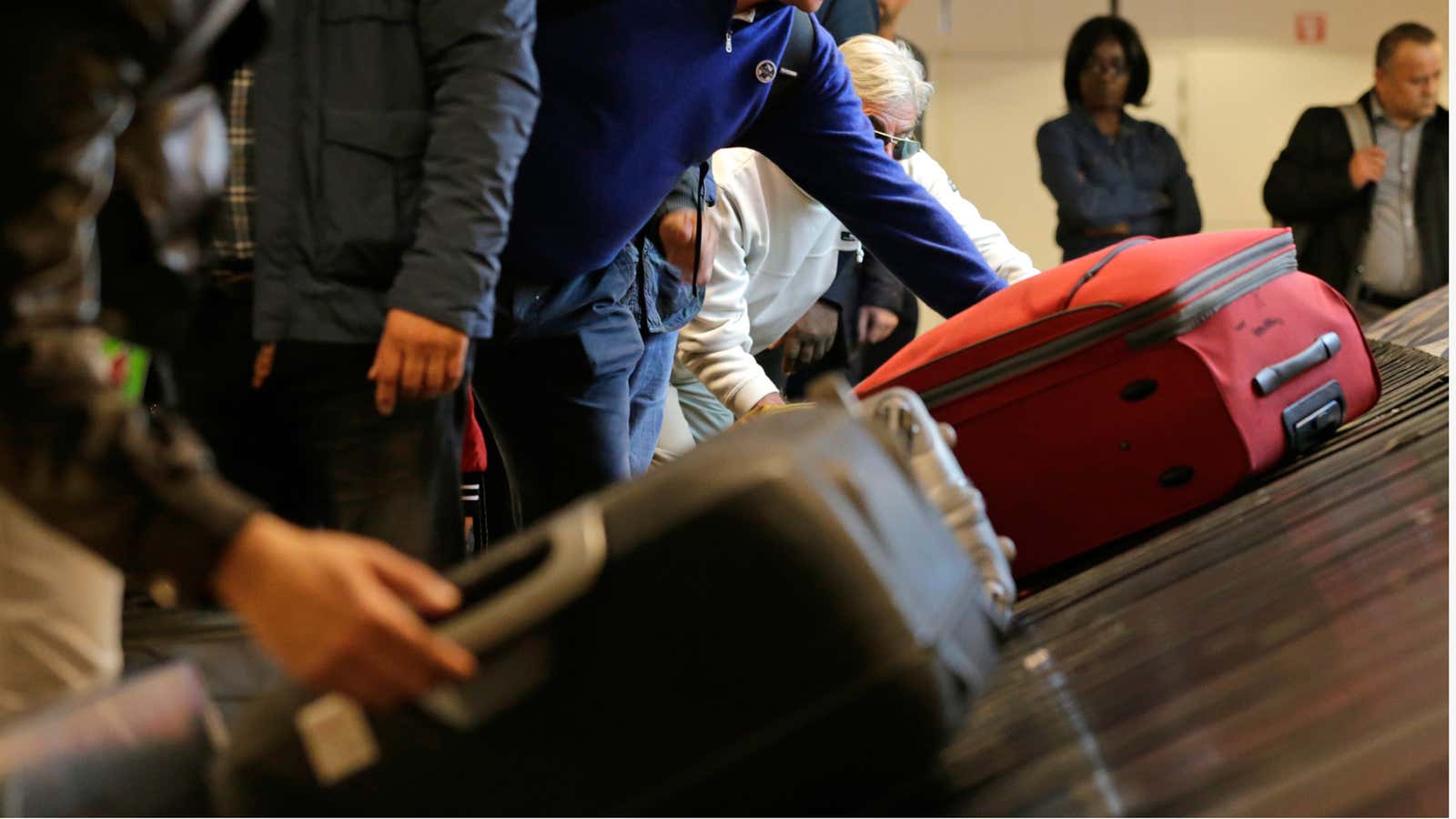Fast-growing startups Uber and Airbnb have turned idle drivers and apartment owners into on-demand chauffeurs and hoteliers. Now a new company wants to apply the peer-to-peer “sharing economy” formula to the age-old courier industry.
Indianapolis-based Carry, which launched yesterday, is a new take on long-distance package shipping. Instead of using FedEx, UPS, or the postal service, the marketplace matches people who need something delivered with travelers who are taking the same route. Current listings are seeking someone to take an iPhone to Mexico from Los Angeles for $350, and bring medication from London to New York for $44.
As with Airbnb, Carry is trying to take advantage of an under-utilized resource—in this case, the unused space in your suitcase. If you’re already going on a trip, it’s a potential way to defray vacation costs. And Carry is pitching itself as a cheaper alternative to express shipping.
It’s easy to spot several hurdles for this type of business, but there’s one big one: While well-funded Uber and Airbnb have dealt with their share of controversy, bad actors, and regulators, it’s hard to imagine more of a hot-button topic than air-travel security after 9/11. And it’s easy to picture nightmare scenarios, including people unwittingly carrying drugs, weapons, or other contraband.
Carry encourages travelers to inspect items before their trips—to avoid unintentionally being a drug mule, for starters—and to transport items via checked luggage, to avoid hold-ups at security. Eventually, the company plans to classify its couriers as official contract workers. Hypothetically, co-founder Peter SerVaas says, this would protect them if they unknowingly transport illegal goods, similar to how UPS or FedEx drivers aren’t liable for the contents of the packages they deliver.
(For the record, a US Transportation Security Administration representative said the agency did not have a policy that prohibited people from traveling with items that belong to others. However, anyone with contraband can be referred to law enforcement and subject to civil penalties, he noted.)
Co-founders SerVaas and Ilya Rekhter tell Quartz the company is adding measures to prevent fraud and abuse. Currently, it is manually performing criminal background checks on travelers, who are paid upon completed deliveries to deter theft. The marketplace also relies on real names and a reviews system, so users can vet each other. And the startup is in talks with underwriting companies to add insurance as an option for shippers. (Under its current terms and conditions, the startup will not reimburse customers for failed transactions—sure to be a stumbling block for some potential users.)
Carry is a bootstrapped startup, founded by the same people as DoubleMap, a transit-software company with $10 million in annual revenue. The company originally planned to launch in the spring, but pushed up its deadline to take advantage of the holiday season and build up its user base.
It’s easy to point out hurdles that might prevent a service like Carry from ever taking off. But if it works, then your suitcase might soon join Uber cars and Airbnb apartments as one of the resources that nobody noticed—until they give birth to multibillion dollar start-ups.
